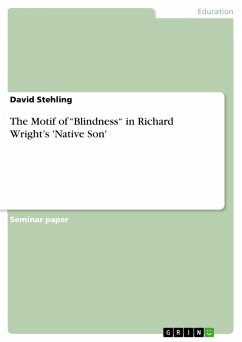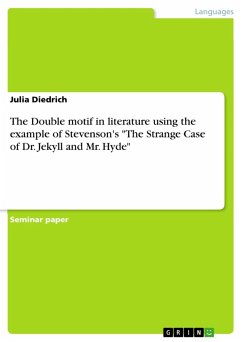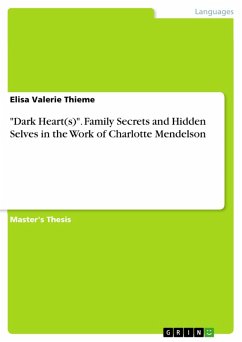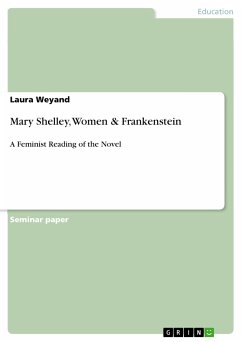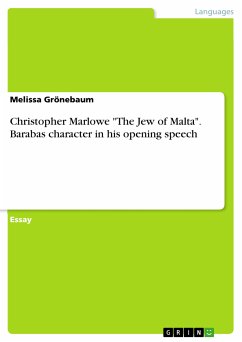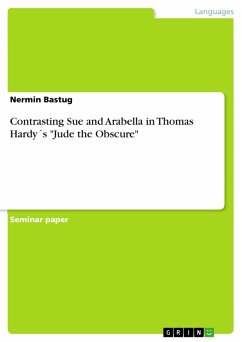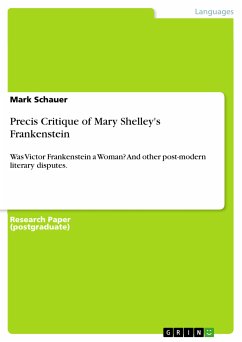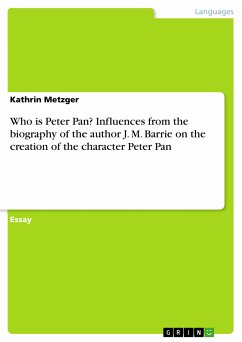Seminar paper from the year 2008 in the subject Didactics for the subject English - Literature, Works, grade: 2,7, http://www.uni-jena.de/ (Institut für Anglistik/Amerikanistik), language: English, abstract: The motif of “blindness” is an idea that recurs many times in Richard Wright’s masterpiece Native Son. Thus it has got a significant meaning to develop the novel’s general theme. This motif, next to others (such as “whiteness”), supports a certain idea: Referring to James Nagel, it is “[…] operative throughout the novel […]” and provides the impression of “[…] a lack of understanding and of a tendency to generalize individuals on the basis of race. It is both a rationalization for those who are looking and a disguise for those who are looked at.” Almost all the characters, occurring in the novel, are “blind” in a figurative sense, which makes them prejudiced or apparently charitable not knowing what they are actually causing. They provoke hatred and are not able to see reality as it is. In fact, Bigger is considered to be a stereotype representing the whole black mass. Not until the end of Native Son (“But what I killed for, I am!” 429) does he realize his being an individual with particular needs and emotions. Conversely, he sees himself through the eyes of others, especially through those of the white people surrounding him. Obviously, “blindness” plays an important role in the novel. This seminar paper will deal with this motif that underlines the character’s “lack of understanding”, as Nagel would call it, and their tendency to consider an individual to be just an example of a whole mass, namely Bigger as the stereotype of the whole black community. In that way, microcosm is turned to macrocosm with no respect to Bigger’s individuality. For the following analysis, it is, at first, necessary to focus on the definition of the term “motif” to continue with the main part. The latter is planned to include the “blindness”, either in a literal or figurative sense (or both), of certain characters. Therefore, Mary and Jan will be considered at first. Secondly, we look at Mr. and Mrs. Dalton to go on further with Boris Max, Bigger’s lawyer in the trial of the third book. These figures are chosen because of their significance for the plot and Bigger’s personal development. Furthermore, they represent the meaning of “blindness” and its effects, mentioned above, best. The protagonist Bigger himself will be the last character who will be analysed according to his “blindness” to end up in a brief conclusion.
